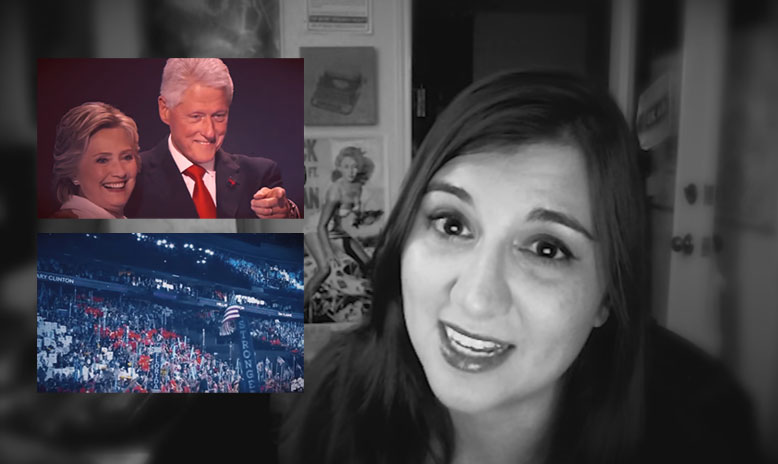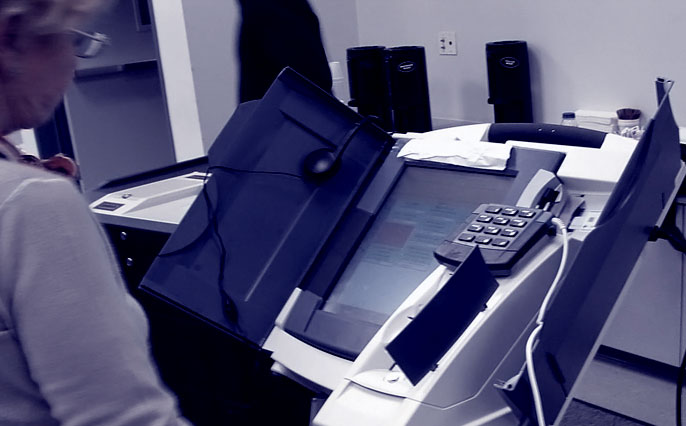If you look up election fraud in any search engine, you’ll see numerous articles from mainstream media regarding voter fraud instead, making it difficult for the general public to understand the difference.
Election rigging, as I’ve stated in a previous article, is as old as democracy itself. Today, a major part of the problem with discussing the issue is the confusion the general public in the distinction between voter fraud and election fraud, and the mainstream media really doesn’t help.
From the New York Times to Politico to even PBS, the first results you see in Google for “election fraud” related queries are all from mainstream news sources referring primarily to “voter fraud” in the current 2016 presidential election and how it’s “rare” — and I’m inclined to agree. That’s because voter fraud isn’t primarily how the elections are being rigged. And the reason why it happens so rarely is because it’s easy to catch, so people don’t do it. But before we get into this in depth, let’s first go over the difference between voter fraud and election fraud.
The distinction is easily missed because voter fraud is a type of election fraud. Election fraud encompasses quite a few acts of election rigging. For example, voter suppression can be election fraud, such as the case of the 120,000 voters mysteriously purged from Brooklyn, NY this year, to which the New York Board of Elections said was “an accident”. Diane Haslett-Rudiano, the Board of Elections’ chief clerk, was suspended without pay for the supposed mishap, but the voters who couldn’t vote were not satisfied because it was such an obvious disenfranchisement stunt that it really should have been investigated as election fraud. Another form of voter suppression that caused disenfranchisement within the Democratic party this year was switching people’s party affiliation to independent or republican, some cases even involving forged signatures on the registration application. Again, this is a form of election fraud, but is not voter fraud, yet mainstream news continues to use the terms interchangeably.
Voter fraud is when votes are faked. An example would be, as Fox News’ Eric Shawn pointed out, absentee ballots being filled out by the same person on behalf of multiple people. In Shawn’s report, he actually spoke to people whose votes had been robbed and they explained on camera that it’s not their handwriting and that they did not fill out the ballots — this isn’t voter fraud, it’s . He also reported on vote bribery and unauthorized proxy voting. (see video below)
The most shocking form of election fraud also is not voter fraud: voting software that is rigged for a predetermined winner, otherwise known as electronic election fraud. And it’s become a major method of rigging both primaries and general elections.
In my interview with Ohio election fraud lawyer Cliff Arnebeck, he explained that there was a 25-33% difference between the exit polls and the machine totals. To make matters worse, the data that he and Bob Fitrakis, another lawyer from Ohio, had requested from the exit poll takers hasn’t yet been delivered. With only a couple months left before the general election, it’ll be surprising if their RICO lawsuit actually comes through in time.
What’s worse, however, is the latest anti-trump campaign that we’ve seen from Democrats all the way through the White House, with President Obama stating that election rigging is a conspiracy theory, an obvious attempt to discredit Trump as a kook. The fact that there’s a 100-page report proving all the forms of election fraud that happened this primary season shows that even the POTUS will lie to the press on behalf of his party, ultimately becoming a propagandist himself. This was in retaliation for Trump’s statements made recently that Democrats would exploit “weak identification laws” in order to rig the general election for Hillary Clinton. This may actually be true, considering all the evidence we have of a rigged primary, but it isn’t even the real issue we should be talking about, which is electronic election fraud.
I used to have a love/hate relationship with the mainstream media’s coverage of election fraud, but it’s recently turned to only hate. The Washington Post, for example, can give us an important piece about election fraud that is well written — that’s only 150 words long. Really, guys? A RICO lawsuit in the works regarding electronic election fraud and you can only come up with 150 words about it? They then bury it deep within the site, don’t promote the article, and focus more energy on writing articles about how voter fraud rarely happens and Trump needs to shut up about it. It also doesn’t promote an article like the one I’m writing here today to help readers understand the difference between the terms. I’m not even sure the outlet knows or cares, and what we’re left with is a fundamental lack of understanding that while voter fraud itself is rare, election fraud is running rampant and has been for quite some time. Our elections, based on the evidence we have since the 2000 Presidential Election, are getting increasingly worse in terms of election fraud.
Perhaps the worst aspect about this confusion is the fact that people keep saying election fraud doesn’t happen and then point to studies proving voter fraud is rare. This fundamental misunderstanding of the difference between election fraud and voter fraud is what continues the propaganda we hear from the Democratic party, who pushes for lax laws regarding voter identification at every turn. Lax laws, they argue, are to reduce racist voter suppression, but for some odd reason they never seem to want to talk about all the other forms of election fraud for which there is so much evidence of. At the end of the day, both the Republican and Democratic parties seem to engage in extremely dirty, dishonest politics in order to win, win, win, and all it does is allow criminals to become decision makers on behalf of the rest of us.
|
Zachary Paul
Zachary Paul is an independent investigative journalist living in New York City. |





